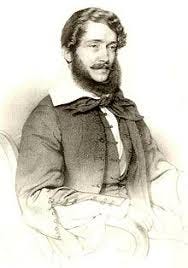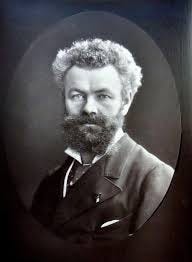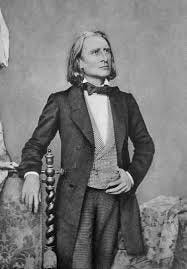Meet Maurus Jókai: "The Shakespeare of Hungary" and His Forgotten Masterpiece
Maurus Jókai, a writer so prolific and beloved that he was crowned 'The Shakespeare of Hungary' in his lifetime - yet remains virtually unknown to many Western readers today.
Disguised in his actress wife’s clothing, Hungary’s greatest novelist escaped from prison during the revolution of 1848 - just one chapter in the extraordinary life of Maurus Jókai, whose novel The Nameless Castle we’ll be exploring together.
Welcome to the read-along of The Nameless Castle, a historical novel by one of literature’s most fascinating yet overlooked figures. Before we dive into the pages of this Napoleonic-era tale, let’s meet the extraordinary mind behind it.
Who was Maurus Jókai?
Born in 1825 to nobility in a Hungary struggling under Austrian rule, Jókai was no ordinary aristocrat. While many of his peers lived lives of idle privilege, young Maurus burned with intellectual curiosity and creative energy. Though initially torn between art and literature, a prize-winning drama written at just seventeen years old set him on the path to becoming Hungary’s most beloved writer.
Over his 50-year career, Jókai published an astounding 350 works: novels, plays, essays, and countless newspaper articles. His writing combined romantic idealism with vivid characterizations, historical detail, and a dash of the fantastic that captivated readers across all social classes.
Jókai was the most romantic of the romantics, and the eccentricities, artificialities, and exaggerations of the romantic school abound in his novels, and to a lesser extent in his tales. But he was also a great humorist, a still greater poet, a perfect master of style, and a consummate story-teller. In some respects he reminds one of the elder Dumas, in others he is close akin to Dickens; in others, again, we detect the influence of Hugo and George Sand. But all these resemblances are, after all, slight and superficial. The great Magyar romancer really owed very little to any of his contemporaries, and drew his inspiration mainly from his own inexhaustible resources.
Revolutionary Circles: Jókai’s Famous Friends
The story of Jókai cannot be told without mentioning the revolutionary company he kept.
Sándor Petőfi: Hungary’s national poet and Jókai’s dearest friend from student days. Together, they sparked a literary revolution that preceded the political one. When censorship threatened to silence Petőfi’s revolutionary poems, Jókai helped set the type by hand in a print shop - an act of literary rebellion that helped ignite the revolution of 1848.
Lajos Kossuth: The great Hungarian freedom fighter with whom Jókai fought “with sword and pen” during the revolution against Austrian rule. While Kossuth was forced into exile after the failed uprising, Jókai remained in hiding in Hungary, writing under pseudonyms with a price on his head.
Mihály Munkácsy: A relative of Jókai who became one of Hungary’s greatest painters.
Franz Liszt: The legendary composer completed the quartet of Hungary’s most celebrated 19th-century cultural figures. Through the article doesn’t detail their relationship, Jókai, Kossuth, Munkácsy, and Liszt are considered Hungary’s “great four” from this golden era.
The Nameless Castle - What to Expect
Set against the backdrop of the Hungarian army’s campaign against Napoleon in 1809, The Nameless Castle showcases Jókai’s talents for historical fiction. Like many of his works, it blends historical events with romance, adventure and deeply human characters caught in extraordinary circumstances.
Written by a man who himself lived through revolution, war, and national transformation, the novel offers not just entertainment, but insight into a crucial period of European history from a perspective rarely encountered in Western literature.
Why Read Jókai Today?
In an age of global literature, rediscovering Jókai offers several rewards:
An authentic Hungarian voice during a transformative era in European history.
Storytelling that balances idealism with historical detail.
Access to a literary tradition often overlooked in Western education.
Characters and situations that, while rooted in their time, explore universal human themes.
A discovery of Hungarian culture - no other writer knew his people better than Jókai.
The Translation
The Nameless Castle was translated by Sara Elisabeth Boggs (1843-1919, San Diego). Nothing much is known about her, other than that she translated a few Jókai novels, and even though the translation we will be using boasts of being the most accurate one, this is unfortunately not the case.
Up to the present, however, it has always been under difficulties; for such of my works as have been published in the English tongue either were not translated from the original Hungarian text, or, even if they were, through want of final perusal, were introduced to public marred by numerous faults.
It is quite certain that Ms. Boggs did not speak Hungarian, or if she did, it was not nearly enough for a faultless translation, as sometimes paragraphs, and what’s more, whole chapters are missing. There is a high probability that the novel was translated from German. It is hard to tell why some parts are missing from the English version; it might have been the translator’s choice to leave out the parts she didn’t understand, found offensive of insignificant. I will point out and supply the translations of the parts that are missing.
Our Reading Journey
The English translation of The Nameless Castle can be downloaded from here: The Nameless Castle
The Hungarian original (please note that as it was written almost two hundred years ago, the language has changed significantly, so it might not be an easy read): A névtelen vár
The podcast: The Nameless Castle audiobook
We will read one chapter a week. I have already uploaded the audiobook versions of the first few chapters, and I will continue uploading the novel one chapter a week, on Sundays. I will provide notes, explanations and study guides to paying subscribers. Free subscribers will also be able to follow by listening to the audio but receiving an occasional article only, so please consider upgrading to paid. I will also enable the chat feature; comments and discussions are very welcome.
Join me as we unlock the mysteries of The Nameless Castle and experience the literary magic that made Maurus Jókai the most celebrated Hungarian writer of this age - a nation treasure whose works deserve a place on the world stage.
Next week, we will discuss Part One, Chapter One: The Nameless Castle, Part 1 Chapter 1
See you next week,
Anikó











